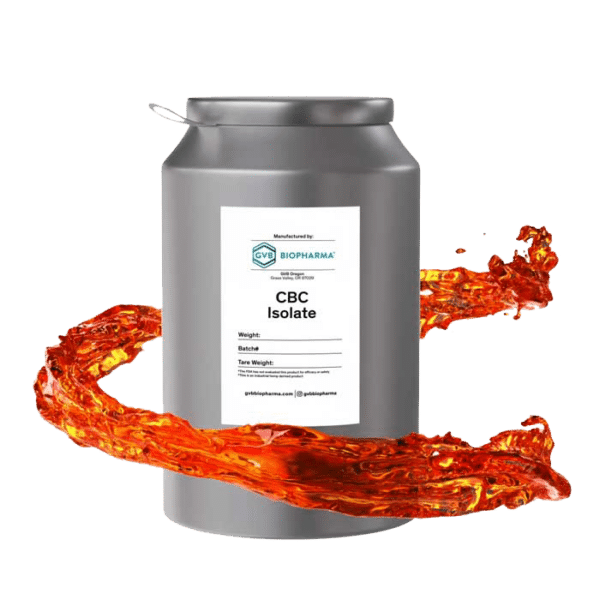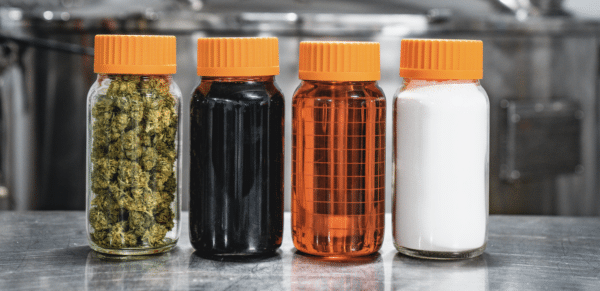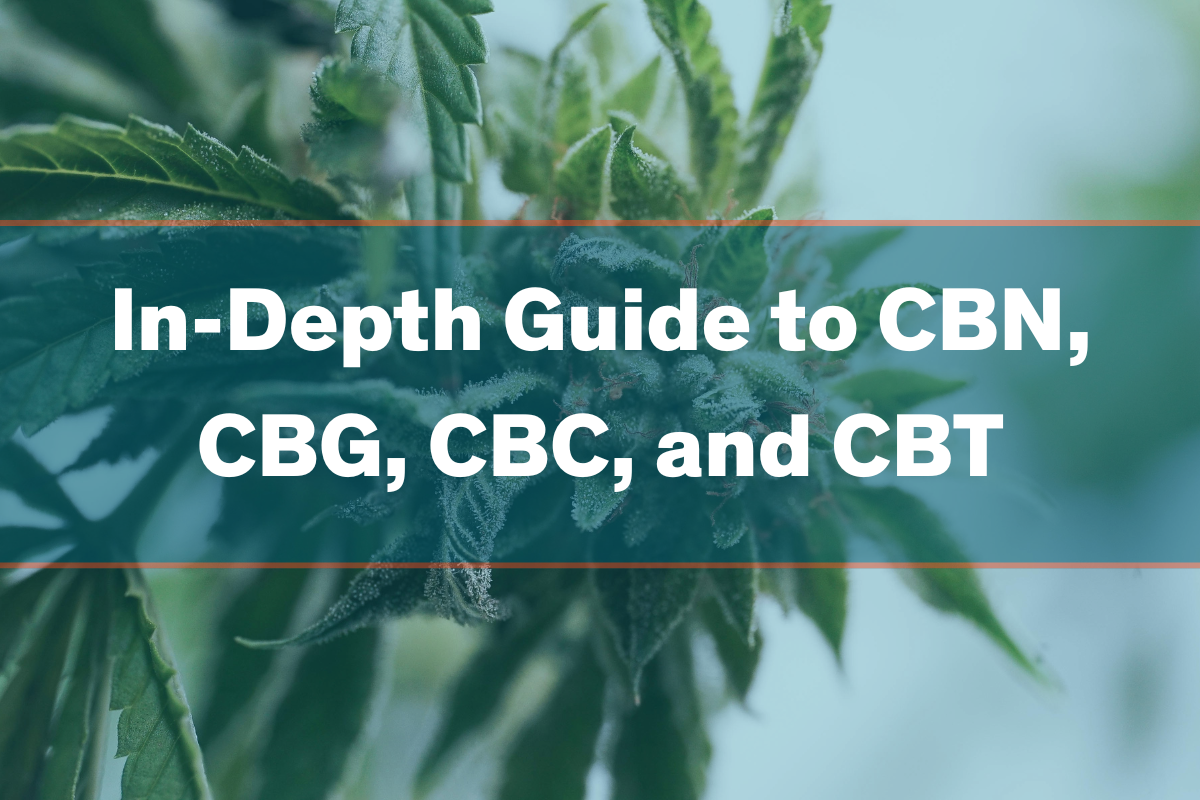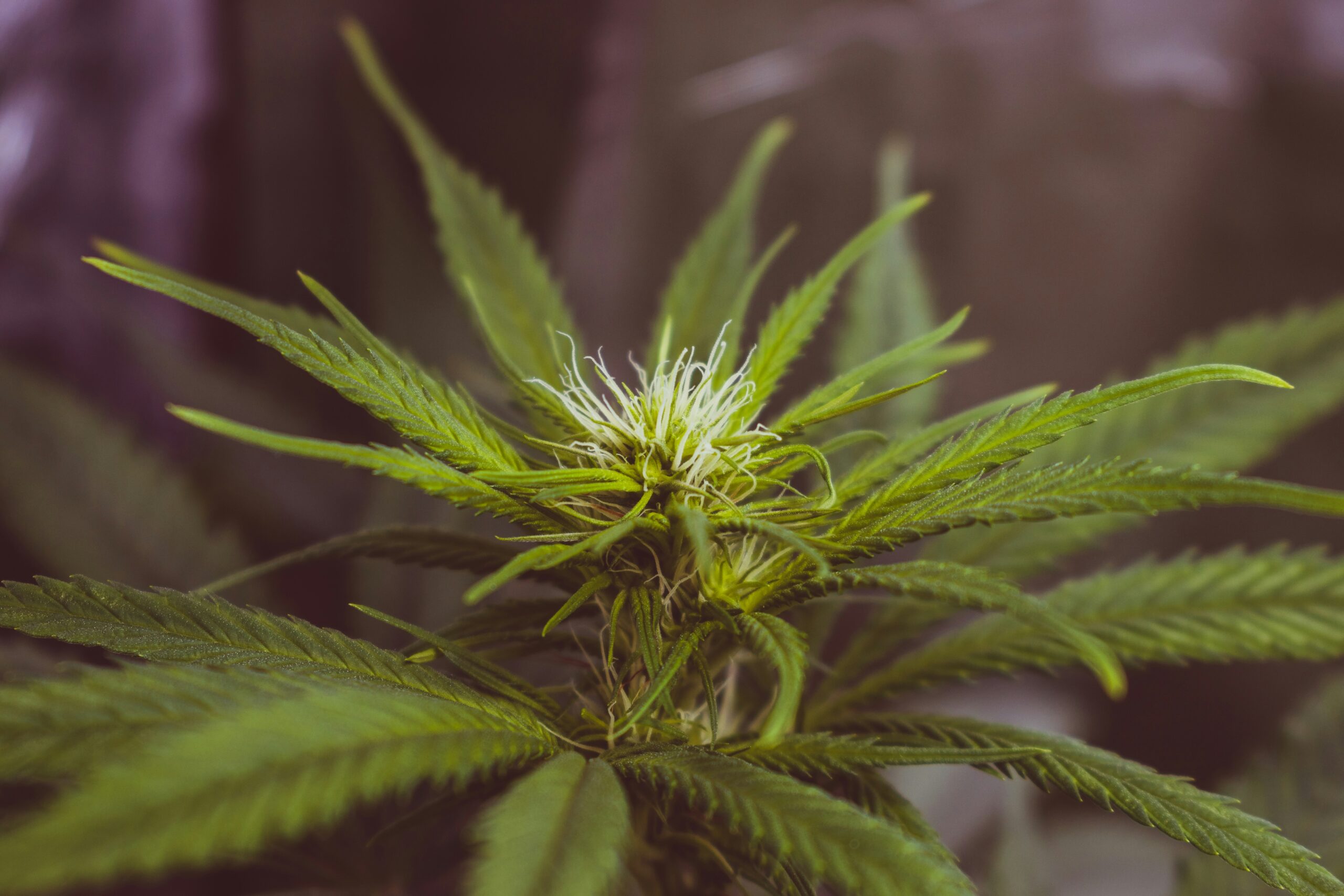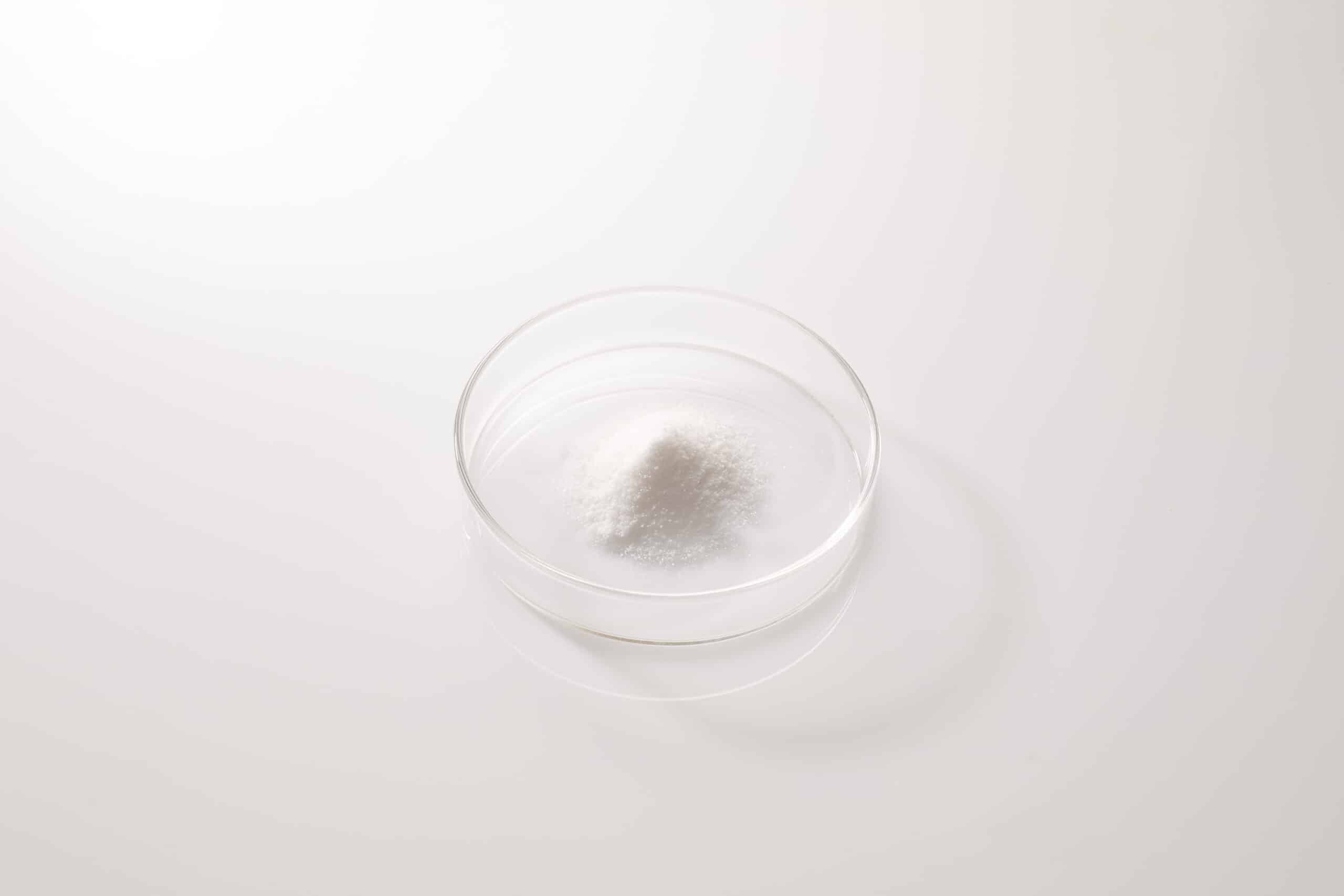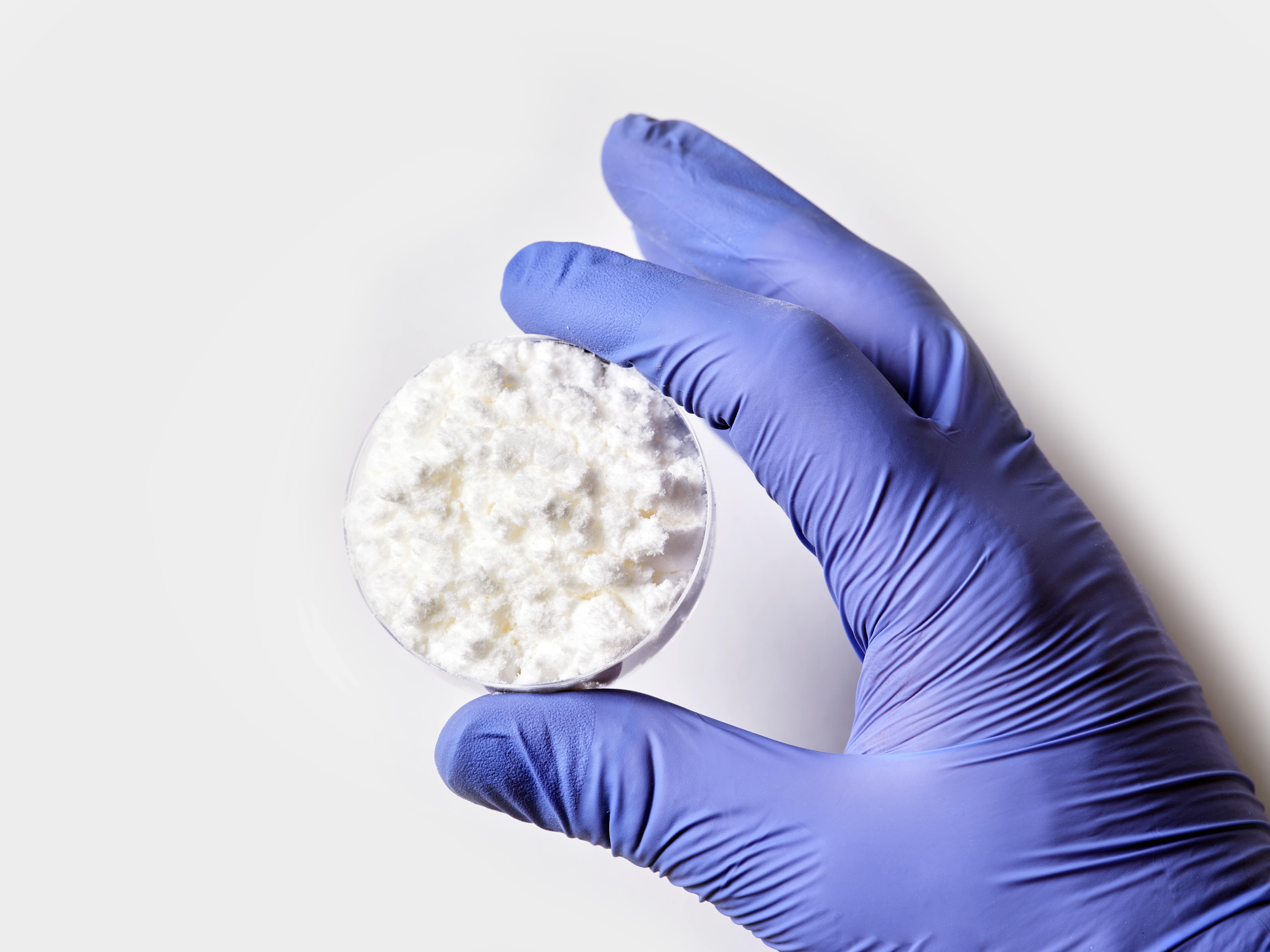Discovered in 1966¹, cannabichromene, or CBC, has been a core component of cannabis research for more than half a century despite being overshadowed by THC and CBD. There’s a lot we still don’t concretely know about CBC, but everything we’ve learned so far indicates this natural cannabinoid is well-worth extensive study. Let’s explore what CBC is, what it does, and the most important facts surrounding this uniquely beneficial cannabinoid.
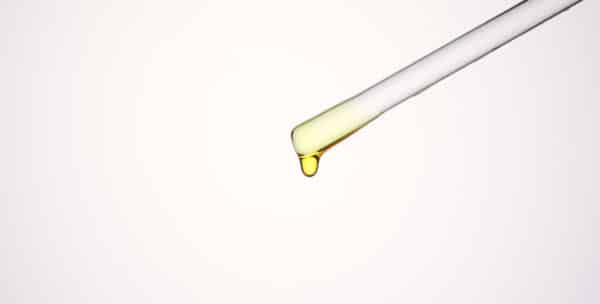
What is CBC?
Cannabichromene (CBC) is a natural cannabinoid found in Cannabis sativa. Like other cannabinoids, it comes from a parent molecule, an acidic precursor known as cannabichromenic acid (CBCa). CBCa differs from the acid forms of CBD and THC because it does not originate from CBGa, which many mistakenly consider the sole “stem cell” cannabinoid.
CBC appears to be the molecular head of its own little “family” of cannabinoids, which includes CBT (cannabicitran), a rare but fascinating natural cannabinoid² with many unique forms. Perhaps due to its slightly distanced lineage, CBC is known for its unique effects.³ Still generally considered to be non-intoxicating like CBD, the effects of CBC are often described as ‘energizing’.
What is CBC made from?
At this point, breeders have not yet succeeded in cultivating cannabis plants that are naturally high in CBC. Concentrations of this cannabinoid in cannabis flowers rarely exceed 1%, necessitating an alternative source of CBC.
Thankfully, the acidic precursor of CBG, CBGa, can be converted into CBCa relatively easily. Then, it’s simply a matter of decarboxylating CBCa into its final form, CBC, which occurs at temperatures exceeding 250° F.4
How is CBC different from CBD?
CBC is different from CBD in terms of chemical structure, pharmacokinetics in the human body, and reported effects. While mimicking CBD in some ways, CBC interacts with a different set of neuroreceptors in the body and brain, and some users report that the effects of CBC are energizing while CBD is usually described as relaxing or even soporific (may cause drowsiness).
It’s worth noting that CBD is also different from CBC in terms of popularity. As a lesser-known cannabinoid, CBC has fewer product options available. However, brands now source reliable CBC extracts, and many CBC products match CBD products in safety and quality.
How CBC Works: Beyond the Basics
Cannabichromene does not directly activate the CB1 or CB2 receptors typically associated with cannabinoids like THC or CBD. Instead, CBC interacts indirectly, particularly through its effects on transient receptor potential channels (TRP channels) and by enhancing the body’s own endocannabinoid system through anandamide uptake inhibition.
This mechanism is significant as anandamide—often called the “bliss molecule”—plays crucial roles in mood regulation, pain relief, and reducing inflammation.
Can you take CBD and CBC together?
Yes, there is no indication that ingesting CBD and CBC together should present any specific dangers. In fact, all the available evidence indicates that combining cannabinoids increases their effectiveness, a phenomenon cannabis scientists have dubbed the “entourage effect.”5
Keep in mind, though, that CBD and CBC use the same neuroreceptors for metabolism, so both cannabinoids run the risk of interfering with certain common prescription medications. In general, drugs that come with “grapefruit warnings” are incompatible with cannabinoids. Consumers can consult with physicians if they are concerned about potential CBC drug interactions.
What are the effects of the cannabinoid CBC?
Like CBD, CBC is generally considered non-intoxicating, although its effects differ somewhat from CBD. Scientists have not yet fully established CBC’s exact pharmacokinetics, so it’s unclear why CBC often feels more energizing, whereas CBD tends to be more relaxing.
Whatever the reason behind the differing effects of CBD and CBC, rest assured that neither cannabinoid will cause intoxication. The vast majority of cannabinoids are non-intoxicating, so this similarity between CBD and CBC shouldn’t come as much of a surprise.
The Latest Research on CBC
Anti-Inflammatory and Skin Health
A 2024 study published in the International Journal of Molecular Sciences investigated CBC’s effects on atopic dermatitis (AD) using a mouse model. Topical application of CBC significantly reduced skin lesion severity, ear thickness, and mast cell infiltration. The study also observed a decrease in Th2 cytokines and inflammatory mediators, suggesting that CBC may alleviate AD symptoms by modulating the immune response.
What are the benefits of CBC?
So far, CBC has been investigated for a variety of potential benefits. Based on existing evidence, it’s too soon to make any concrete assumptions regarding the benefits of CBC, but there’s plenty of research to look at as you draw your own conclusions regarding the potential usefulness of this non-intoxicating cannabinoid. Let’s explore the four main areas where researchers have most extensively studied CBC: pain relief, neurological health, skin health, and depression.
Is CBC good for pain?
CBC has been included in studies conducted into the usefulness of cannabinoids for pain.6 The results of this research revealed possible analgesic properties in the compound and have encouraged scientists to conduct further research in the pain-relief potential of CBC and other cannabinoids. Expect future research into cannabinoids and pain to increasingly include CBC as a focus.
Is CBC good for your brain?
Scientists have become very interested in the activity of CBC within the human nervous system. Out of all the cannabinoids so far discovered in hemp, CBC appears to exert some of the most activity within the brain and the rest of the nervous system, leading to a 2013 study conducted into the impact of CBC on neural stem cells7 along with other related research.
Is CBC good for your skin?
Some research has been conducted into the impact of CBC on acne and other skin conditions.8 There is not enough conclusive evidence to understand how CBC affects your skin to draw any conclusions, but interest in CBC-infused topicals is certainly on the rise.
Is CBC good for depression?
Due to its observed neurological activity, scientists have become curious about the usefulness of CBC for depression and related conditions.9 Future research may tell us more about the ability of CBC and other cannabinoids to help with common psychological maladies, but there currently is not enough evidence to draw any firm conclusions.
What is the right dose for CBC?
We don’t know enough about the cannabinoid CBC yet to make any specific recommendations regarding dosing. All the available evidence indicates, however, that CBC is very well-tolerated in human bodies—just like CBD.
Is CBC legal?
Under the 2018 Farm Bill, CBC is generally classified as a hemp-derived cannabinoid, similar to CBD. Consequently, this non-intoxicating cannabinoid isn’t federally scheduled, and CBC products are readily available for purchase online. Analysts generally contend that CBC is in the same legal category as CBD along with all other natural cannabinoids aside from delta-9 tetrahydrocannabinol (delta 9 THC).
Where can I buy CBC?
The cannabinoid CBC is widely available online in the form of both finished products and isolated extracts. You can buy CBC online in any desired quantity just like any other hemp cannabinoid, and CBC products are offered in both retail and wholesale quantities.
CBC products vary in terms of quality, though, so choose your online supplier with discretion. Fully vertically integrated cannabinoid suppliers with comprehensive certifications and lab reports offer the most reliability and value when it comes to CBC products.
Can I buy CBC in bulk?
Yes, both finished CBC products and CBC extracts are offered in bulk quantities. With demand for CBC rising as consumers learn more about this cannabinoid’s unique benefits, CBC products usually offer excellent sell-through provided that their potential benefits are conveyed effectively. Consult with your bulk cannabinoid supplier for more information on popular CBC product formulations.
What types of wholesale CBC products are there?
The cannabinoid CBC is commonly offered in the form of an isolated extract. CBC isolate is often sold in bulk as-is, but it’s also possible to buy pre-formulated, CBC-infused products such as vapes and topicals. Both oil-based and water-based CBC topicals are offered wholesale online, and you can take your pick between orally ingested products like capsules, tablets, and tinctures. The sky’s the limit when it comes to customized CBC-infused product formulations—contact GVB Biopharma today to learn more.
What are the “big 6” cannabinoids?
The cannabinoids THC, CBD, CBC, CBN, CBG, and THCV are sometimes referred to as the “big 6” due to the amount of research conducted on these compounds alone. However, each of the 100+ cannabinoids discovered in hemp offer unique benefits,and there are many different variants of each big 6 cannabinoid. Examples of additional cannabinoids that are starting to attract more research include CBDV, CBT, and CBL.
CBC FAQs
1. What is cannabichromene good for?
Currently, our understanding of CBC is limited, making it challenging to say what it might be good for. There’s some evidence, however, that cannabichromene might interact with your body and brain’s TRP receptors, which regulate inflammation. So, scientists are keenly researching the potential anti-inflammatory properties of CBC even though we don’t know enough to draw any definitive conclusions.
2. What is the difference between CBG and CBC?
Chemically speaking, CBG and CBC are relatively different. Researchers have recently realized that CBG serves as something like a “stem cell” for the popular and well-known cannabinoids THC and CBD. In the same way, CBC serves as a stem cell for its own group of cannabinoids, which are structurally distinct from their CBG-group counterparts.
Based on the small amount of evidence we’ve accumulated so far, it’s possible that CBC and CBG might be alike in offering effects that are more energizing than those offered by CBD. In terms of benefits and potential medicinal applications, though, it’s too soon to say for either CBG or CBC.
3. What is the difference between CBN and CBC?
While CBN is a derivative of THC that occurs due to oxidative stress, CBC is a unique compound that develops inside budding hemp flowers. It would be theoretically possible, for instance, to breed hemp plants that contain high concentrations of CBC, something that cannot be done with CBN since it only occurs after hemp has been harvested.
4. What is cannabichromene oil?
The term “cannabichromene oil” is sometimes used to refer to concentrated hemp extracts that contain CBC. It can also refer to CBC tinctures in the same way that tinctures with CBD are called “CBD oil.”
Sources
1. Gaoni, Y., & Mechoulam, R. (1966). Cannabichromene, a new active principle in hashish. Chemical Communications (London), 1, 20. https://doi.org/10.1039/c19660000020
2. Radwan, M. M., Chandra, S., Gul, S., & ElSohly, M. A. (2021). Cannabinoids, Phenolics, Terpenes and Alkaloids of Cannabis. Molecules, 26(9), 2774. https://doi.org/10.3390/molecules26092774
3. Zagozen, M., Cerenak, A., & Kreft, S. (2021). Cannabigerol and cannabichromene in Cannabis sative L. Acta Pharmaceutica, 71, 355-364. https://hrcak.srce.hr/file/351862
4. Olejar, K. J., & Kinney, C. A. (2021). Evaluation of thermo-chemical conversion temperatures of cannabinoid acids in hemp (Cannabis sativa L.) biomass by pressurized liquid extraction. Journal of Cannabis Research, 3(1). https://doi.org/10.1186/s42238-021-00098-6
5. Ferber, S. G., Namdar, D., Hen-Shoval, D., Eger, G., Koltai, H., Shoval, G., Shbiro, L., & Weller, A. (2020). The “Entourage Effect”: Terpenes Coupled with Cannabinoids for the Treatment of Mood Disorders and Anxiety Disorders. Current Neuropharmacology, 18(2), 87–96. https://doi.org/10.2174/1570159×17666190903103923
6. Maione, S., Piscitelli, F., Gatta, L., Vita, D., de Petrocellis, L., Palazzo, E., de Novellis, V., & di Marzo, V. (2011). Non-psychoactive cannabinoids modulate the descending pathway of antinociception in anaesthetized rats through several mechanisms of action. British Journal of Pharmacology, 162(3), 584–596. https://doi.org/10.1111/j.1476-5381.2010.01063.x
7. Shinjyo, N., & di Marzo, V. (2013). The effect of cannabichromene on adult neural stem/progenitor cells. Neurochemistry International, 63(5), 432–437. https://doi.org/10.1016/j.neuint.2013.08.002
8. Oláh, A., Markovics, A., Szabó-Papp, J., Szabó, P. T., Stott, C., Zouboulis, C. C., & Bíró, T. (2016). Differential effectiveness of selected non-psychotropic phytocannabinoids on human sebocyte functions implicates their introduction in dry/seborrhoeic skin and acne treatment. Experimental Dermatology, 25(9), 701–707. https://doi.org/10.1111/exd.13042
9. El-Alfy, A. T., Ivey, K., Robinson, K., Ahmed, S., Radwan, M., Slade, D., Khan, I., ElSohly, M., & Ross, S. (2010). Antidepressant-like effect of Δ9-tetrahydrocannabinol and other cannabinoids isolated from Cannabis sativa L. Pharmacology Biochemistry and Behavior, 95(4), 434–442. https://doi.org/10.1016/j.pbb.2010.03.004

